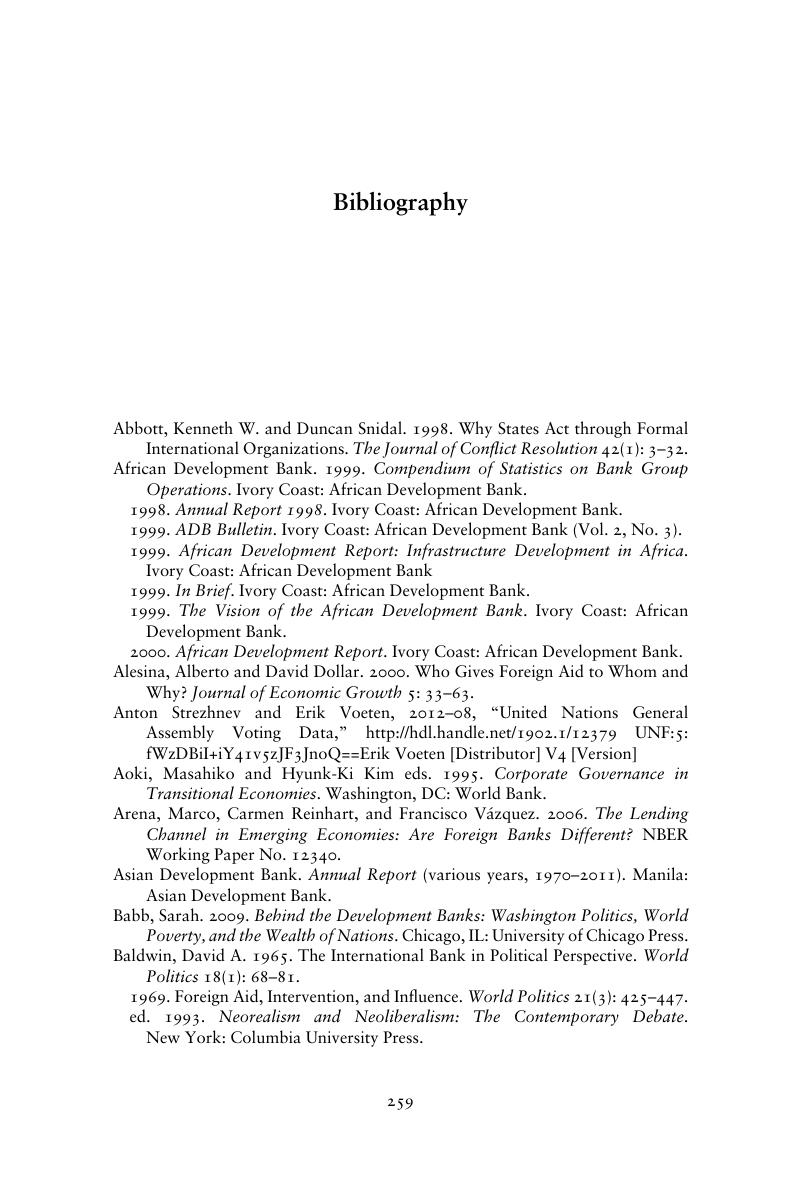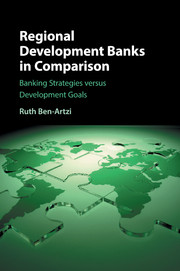Book contents
- Frontmatter
- Dedication
- Contents
- List of Figures
- List of Tables
- Preface
- Acknowledgments
- Introduction
- 1 International Financial Institutions, Development, and Regional Development Banks
- 2 Multilateral Governance: Theoretical and Empirical Underpinnings
- 3 Origins, Politics, and Structure of Regional Development Banks
- 4 RDB Loans and Developing Countries
- 5 Banks or Development Agencies?
- 6 Political and Economic Constraints, Principals and Agents, and Prospects for Development
- Conclusion: Future Outlook
- Appendix 1 Life Expectancy and HDI Rank
- Appendix 2 RDB Shareholders
- Appendix 3 AsDB Professional Staff
- Bibliography
- Index
- References
Bibliography
Published online by Cambridge University Press: 05 September 2016
- Frontmatter
- Dedication
- Contents
- List of Figures
- List of Tables
- Preface
- Acknowledgments
- Introduction
- 1 International Financial Institutions, Development, and Regional Development Banks
- 2 Multilateral Governance: Theoretical and Empirical Underpinnings
- 3 Origins, Politics, and Structure of Regional Development Banks
- 4 RDB Loans and Developing Countries
- 5 Banks or Development Agencies?
- 6 Political and Economic Constraints, Principals and Agents, and Prospects for Development
- Conclusion: Future Outlook
- Appendix 1 Life Expectancy and HDI Rank
- Appendix 2 RDB Shareholders
- Appendix 3 AsDB Professional Staff
- Bibliography
- Index
- References
Summary

- Type
- Chapter
- Information
- Regional Development Banks in ComparisonBanking Strategies versus Development Goals, pp. 259 - 268Publisher: Cambridge University PressPrint publication year: 2016



